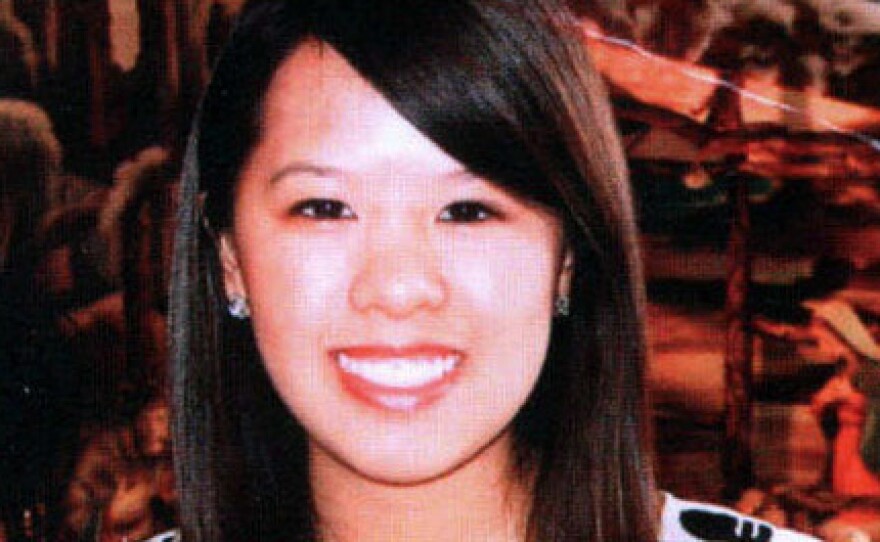
Updated at 7:05 a.m. ET
Officials in Texas say that a second health care worker who treated Liberian Ebola patient Thomas Eric Duncan in Dallas has tested positive for the deadly virus.
The Texas Department of State Health Services says that the health care worker, who was among those who cared for Duncan at Texas Health Presbyterian Hospital in Dallas after his Ebola diagnosis "reported a fever Tuesday and was immediately isolated at the hospital."
"Health officials have interviewed the latest patient to quickly identify any contacts or potential exposures, and those people will be monitored," the statement said. "The type of monitoring depends on the nature of their interactions and the potential they were exposed to the virus."
The Department said the Centers for Disease Control and Prevention in Atlanta confirmed the positive test for Ebola.
Critical Care Nurse Nina Pham, who was diagnosed with the virus on Sunday, also treated Duncan, who died from the disease a week ago after being admitted to the Dallas hospital last week. Pham, 26, is in "good condition" according to the hospital where she was quickly isolated after reporting a fever.
A day after Pham's diagnosis, she received a blood transfusion from Ebola survivor Kent Brantley, an aid worker who contracted the disease while working in West Africa.
"I'm doing well and want to thank everyone for their kind wishes and prayers," Pham said in a written statement released by the hospital. "I am blessed by the support of family and friends and am blessed to be cared for by the best team of doctors and nurses in the world here at Texas Health Presbyterian Hospital Dallas."
In a news conference on Tuesday, Thomas Frieden, the director of the CDC, acknowledged that more could have been done to prevent Pham's infection.
"We did send some expertise in infection control," Frieden said. "But I think we could, in retrospect, with 20/20 hindsight, have sent a more robust hospital infection control team and been more hands-on with the hospital from day one about exactly how this should be managed."
The Associated Press writes: "Officials have said they don't know how [Pham] became infected. But the second case pointed to lapses beyond how one individual may have donned and removed personal protective garb."
Meanwhile, nurses at the Texas hospital have described the response to Duncan's arrival in the emergency room as chaotic, saying he "languished for hours in a room with other patients and that hospital authorities resisted isolating him," according to The Los Angeles Times.
The newspaper reports: "In addition, they said, the nurses tending him had flimsy protective gear and no proper training from hospital administrators in handling such a patient."
The CDC said Tuesday that it's monitoring 77 people who had contact with Ebola patients for symptoms of the disease.
Member station KERA is following this story in a live blog on its website.
Copyright 2014 NPR. To see more, visit http://www.npr.org/.






